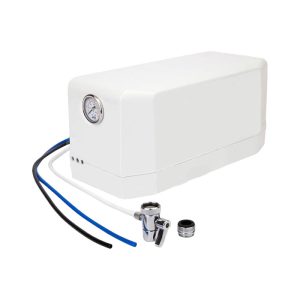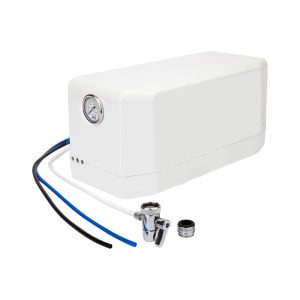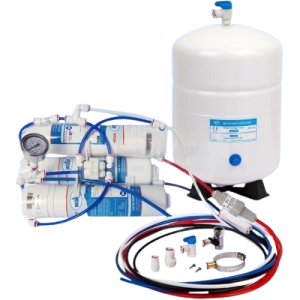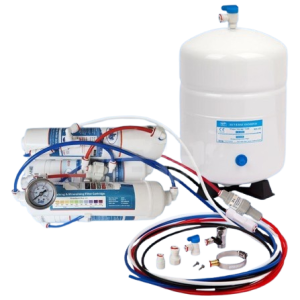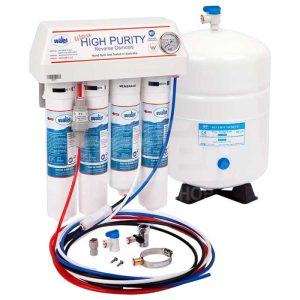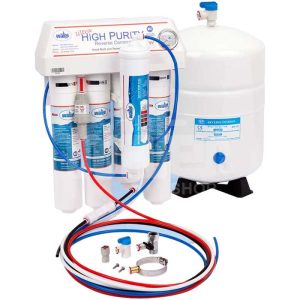Australia's Best
Reverse Osmosis Water Filters
You Know Something’s Not Right with Your Water.
You can smell it. Taste it. Maybe even feel the effects — dry skin, low energy, or unexplained headaches. Whether it’s fluoride, chlorine, PFAS, or heavy metals, you’re not imagining it. The truth is, most tap water in Australia carries a hidden load of contaminants that simply shouldn’t be there.
If you’re here, it’s because you’re ready to do something about it — and you’re in the right place.
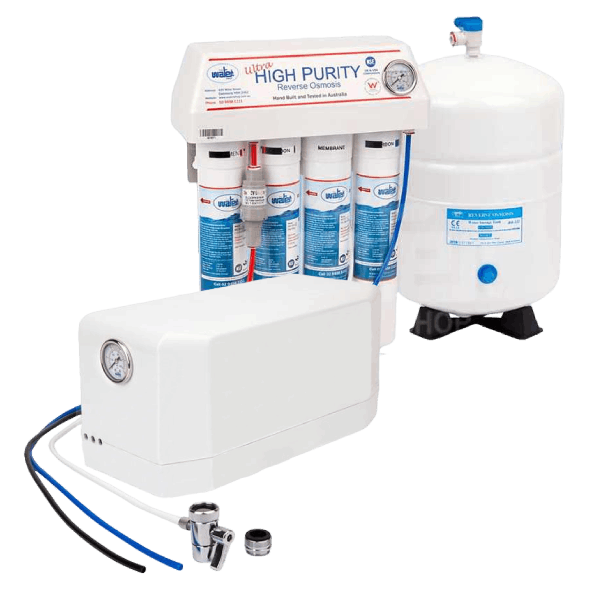
Reverse Osmosis Systems for Complete Confidence
Our under-sink reverse osmosis systems and countertop reverse osmosis systems are made for people who aren’t willing to take risks with their water. They strip away virtually everything your body doesn’t need — including fluoride, chlorine, PFAS, heavy metals, bacteria, microplastics, and more — leaving you with ultra-pure, great-tasting water.
All systems are hand-built and wet-tested here in Australia using certified, trusted components. Choose the systems with remineralisation to add calcium and magnesium back in, or the systems for uncompromising purity without the mineral boost.
- Sale!
Countertop Reverse Osmosis Water Filter – 3 Stage
- Countertop Reverse Osmosis, Benchtop Water Filters, Fluoride Water Filters, PFAS Water Filters, Reverse Osmosis Water Filters
-
$409.00Original price was: $409.00.$379.00Current price is: $379.00. inc. GST
Compact Ultra High Purity Under Sink Reverse Osmosis System with Alkaliser – 4 Stage
- Reverse Osmosis Water Filters, Fluoride Water Filters, PFAS Water Filters, Under Sink Reverse Osmosis, Under Sink Water Filters
- $679.00 – $739.00 inc. GST
- This product has multiple variants. The options may be chosen on the product page
Ultra High Purity Under Sink Reverse Osmosis System with Alkaliser – 5 Stage
- Under Sink Reverse Osmosis, Fluoride Water Filters, PFAS Water Filters, Reverse Osmosis Water Filters, Under Sink Water Filters
- $799.00 – $829.00 inc. GST
- This product has multiple variants. The options may be chosen on the product page
RO Water Filter FAQ
What is Reverse Osmosis
Reverse osmosis (RO) is a water purification process that uses a semi-permeable membrane to remove ions, molecules and larger particles from drinking water. It is able to efficiently remove contaminants through the use of an applied pressure gradient across the membrane which forces water molecules to flow through while rejecting most dissolved solids.
In the reverse osmosis process, contaminated water is pressurised and forced through the RO membrane. Water molecules can pass through the microscopic pores of the membrane, but many impurities such as salts, metals, minerals and organics are unable to fit through and are flushed away in the reject stream. The result is that clean, purified water flows through the membrane while contaminants are left behind, leading to a greatly reduced concentration of dissolved solids in the final product water.
Reverse osmosis removes up to 99% of bacteria, viruses, protozoa, organic and inorganic chemicals, making it an effective method of disinfection and contaminant removal. The purified water produced can be used for drinking, food preparation, aquariums, photography applications and industrial processes. Advancements continue to improve RO membrane technology, resulting in increased efficiency and recovery rates. With its ability to desalinate brackish and seawater, RO is also being utilised to provide freshwater in developing countries.
What contaminants does reverse osmosis remove from water?
Reverse osmosis is effective at removing a wide range of impurities, including fluoride, PFAS, bacteria, viruses, dissolved salts, heavy metals, chemicals, pesticides, and sediment. It can also improve the taste and odour of water.
Is reverse osmosis water safe to drink?
Yes, reverse osmosis water is safe to drink. It removes harmful contaminants and provides clean, purified water. However, it’s essential to ensure your system is well-maintained to ensure best performance. If you are at all concerned about the removal of inorganic minerals during the water filtration process, then please choose the option with the alkalisation and mineralisation.
What are the advantages of using a reverse osmosis water filter in my home?
The benefits include improved water quality, better taste, removal of harmful substances, such as lead, PFAS, and chlorine, and reduced reliance on bottled water. It’s also more cost-effective in the long run.
Are there any drawbacks to using reverse osmosis?
RO systems can be wasteful, as they produce a significant amount of wastewater during the filtration process.
Can I install a reverse osmosis system myself, or do I need a professional?
Many RO systems are designed for DIY installation and come with detailed instructions. However, if you’re not comfortable with plumbing, it’s advisable to hire a professional to ensure a proper setup.
Are reverse osmosis systems suitable for bore water or areas with hard water?
Yes, RO systems are effective at treating well water and hard water, but they may require pre-filtration and regular maintenance to handle these specific water conditions.
What should I consider when choosing an RO system for my home?
Factors to consider include water quality, the system’s capacity, filter replacement costs, installation ease, and any additional features like remineralisation options.

